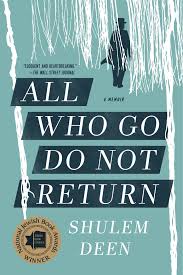For far too many centuries mainstream Judaism mired in ritual and stagnant orthodoxy. Just as the darkness of the Middle Ages was brightening, a new group of rabbis anxious to revive a moribund religion infused joy, song, dance, and the mystical into daily services. The irony is that Hasidic practice then lithified in the 18th and 19th centuries becoming so restrictive and formulaic that sects of Hasidim today are in many ways indistinguishable from religious fundamentalists of any stripe.
 |
| The Seret-Vishnitzer rebbe, center. |
Hasids must adhere to ultra-strict, not just Kosher, dietary rules. Men are separated from women as neither sex may look upon the other outside of marriage. Sexual relations are prescribed with regard time of day, frequency and purpose: procreation. Dress codes may not change from what they were in 1800 eastern Europe. Even English is frowned upon in favor of Yiddish, Hasidism's lingua franca. Schooling for boys is restricted to Torah study. Women are raised to be mothers, only mothers, of as many children as they can bear.
Shulem Deen, the author, suffered the misfortune of a questioning mind. Why, he wondered, was he forbidden from listening to a radio, peering into a magazine, or learning algebra. And having questioned the logic of being assigned a wife he had never met when he was 18, it was not long before questions about the infallibility of Rabbis and even God crept into his consciousness.
Shulem Deen's account of being excommunicated from his community is more than just a first hand account into a closed society, albeit an apostate's view. It is also deeply disturbing to recognize how important community is to all of us and how alone we are if we fail to fit in.
All Who Go Do Not Return takes place in my hometown so for me there is the added benefit of recognizing every landmark and intersection. Shulem Deen's first major act of defiance was to sneak into the Finkelstein Memorial Library, where I held my first job, shelving books, while I was in high school.
 |
| Typical scene in Spring Valley where I grew up. |



Comments
Post a Comment